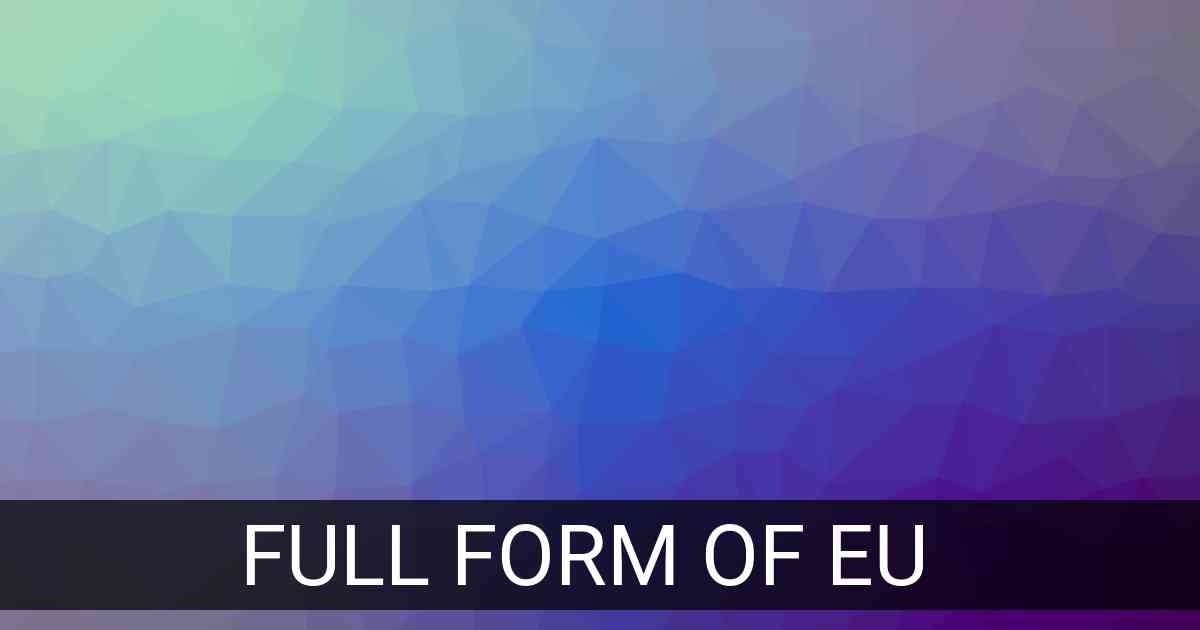
The Full Form of ‘EU’ in Organisation is ‘European Union’.
Full Form of EU
The full form of ‘EU’ in organisation is ‘European Union’. The European Union (EU) is an economic and political union of 28 member states that are located primarily in Europe. It has developed a single market through a standardized system of laws that apply in all member states, ensuring the free movement of people, goods, services, and capital. It has also instituted common policies on trade, agriculture, fisheries and regional development.
The EU was initially established as the European Coal and Steel Community (ECSC) with six founding members in 1952. Since then it has undergone numerous expansions to include more countries and its name changed to the European Economic Community (EEC). In 1993 the Maastricht Treaty created the current version of the EU by transforming it into an economic and political union.
The primary institutions of the EU are:
• The European Commission – responsible for proposing legislation, implementing decisions, upholding the EU treaties and managing the day-to-day business of the EU.
• The Council of Europe – composed of representatives from each member state’s government who meet to make decisions on issues affecting all members.
• The European Parliament – directly elected by citizens from all over Europe every five years; its role is to represent citizens’ interests at a pan-European level.
• The Court of Justice – interprets EU law to ensure it is applied uniformly across all member states; settles legal disputes between members or between them and institutions.
• The European Central Bank – responsible for monetary policy in all Eurozone countries; oversees financial stability throughout the region.
• The European Council – composed of heads of state or government from each member state; makes major policy decisions that define objectives for future action by other EU institutions.
The main goals of the EU are to promote peace, security and stability in Europe; create an area without internal borders where people can move freely; develop a strong economy with low unemployment rates; provide better living standards for its citizens; strengthen democracy through cooperation among its members; protect human rights; uphold environmental protection standards; establish common foreign and security policies; promote scientific progress and technological innovation; encourage cultural diversity and understanding among peoples within its borders. It also seeks to expand its membership beyond just those countries in Europe to include other nations around the world that share similar values towards economic growth, social progress, democracy and human rights protection.
The EU has achieved many successes since its inception such as expanding trade within its borders while maintaining high environmental standards as well as providing large amounts of aid to poorer regions across Europe through structural funds like ERDF or ESF which have helped bridge gaps between wealthy areas like London or Paris compared to less affluent parts like Greece or Portugal. Furthermore, it has been able to negotiate several free trade deals with other countries like Canada or South Korea which help stimulate growth both domestically but also globally due their focus on globalisation rather than protectionism or nationalism which could limit job opportunities for Europeans abroad too.
Queries Covered Related to “EU”
- What is the full form of EU in Organisation?
- Explain full name of EU.
- What does EU stand for?
- Meaning of EU

